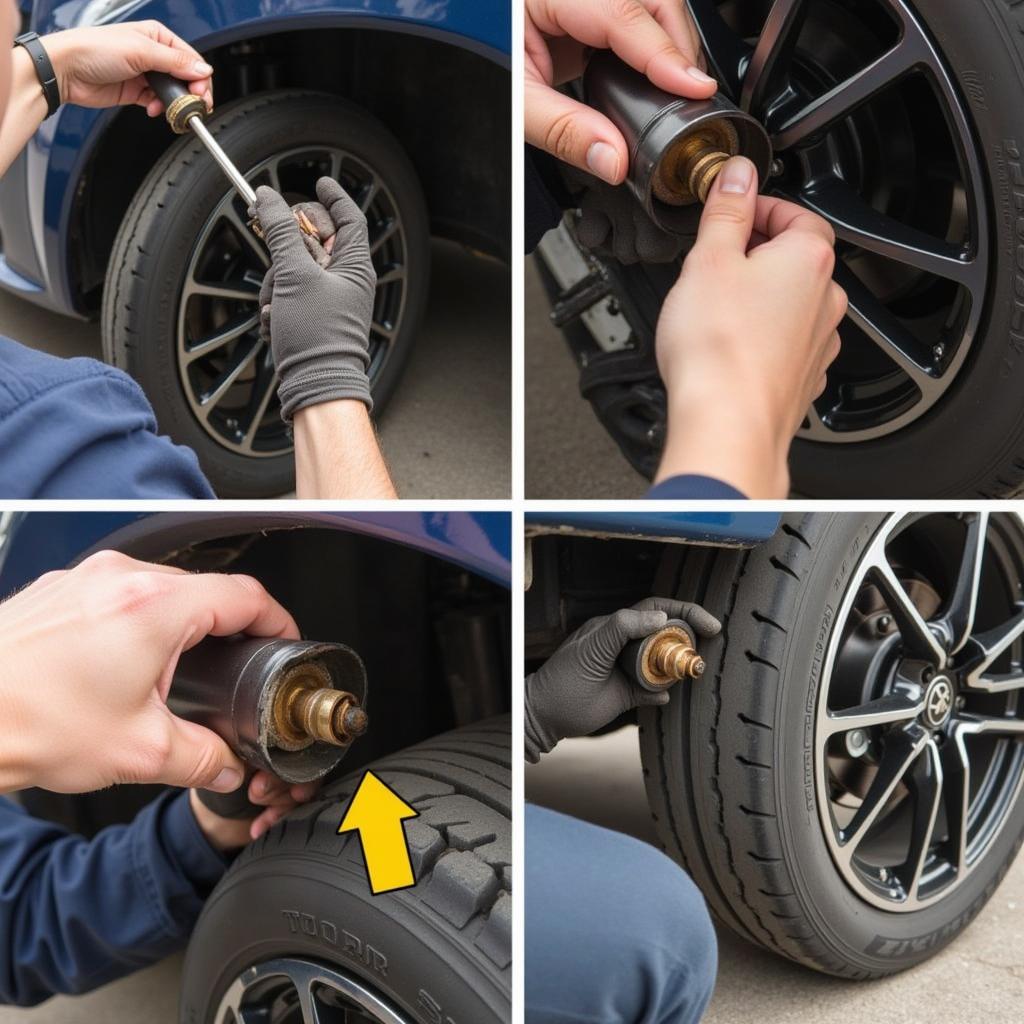Car Park Fixings are essential for maintaining order, safety, and the structural integrity of your parking area. Whether you’re a homeowner looking to tidy up your driveway, a business owner managing a commercial car park, or an automotive technician tackling a repair job, understanding the nuances of car park fixings is crucial. This guide will delve into the various types of fixings, their applications, and best practices for installation and maintenance.
Understanding the Different Types of Car Park Fixings
Choosing the right car park fixings can be daunting, given the variety available. From heavy-duty anchors for bollards to specialized screws for wheel stops, each type serves a specific purpose. Let’s break down the common types:
Anchors
Anchors are the backbone of any secure car park fixing. They provide the necessary strength and stability for larger installations like bollards and height restrictors. Common types include:
- Chemical Anchors: These offer superior holding power in concrete and are ideal for high-load applications.
- Mechanical Anchors: These are quicker to install and suitable for less demanding situations.
- Sleeve Anchors: These expand within the concrete, creating a strong grip.
Bolts and Screws
While seemingly simple, bolts and screws play a vital role in securing various car park elements. Choosing the correct type and size is essential for ensuring longevity and safety. Consider factors like material and corrosion resistance when selecting these fixings.
Specialized Fixings
Certain car park features require specialized fixings designed for their unique needs. These include:
- Wheel Stop Fixings: These are typically heavy-duty bolts or screws designed to withstand the impact of vehicles.
- Sign Post Fixings: These vary depending on the size and weight of the sign and the material of the mounting surface.
- Barrier Fixings: These are designed for specific barrier systems and ensure secure attachment to the ground.
Choosing the Right Fixings for Your Car Park
Selecting the appropriate car park fixings depends on several factors:
- The type of surface: Concrete, asphalt, or gravel each require different fixing methods.
- The weight and size of the item being fixed: Heavier items require stronger anchors.
- The environment: Exposure to weather elements like rain and snow necessitates corrosion-resistant fixings.
- The level of security required: High-security areas may require specialized anti-theft fixings.
Considering these factors will help ensure the longevity and effectiveness of your car park fixings.
Best Practices for Installation and Maintenance
Proper installation is key to maximizing the lifespan and effectiveness of your car park fixings. Here are some essential tips:
- Follow manufacturer instructions: Each fixing type has specific installation requirements.
- Use the correct tools: Using the wrong tools can damage the fixings and compromise their strength.
- Ensure proper surface preparation: Clean the surface and remove any debris before installation.
- Regularly inspect and maintain fixings: Look for signs of wear and tear, corrosion, or loosening.
- Replace damaged fixings immediately: A compromised fixing can lead to safety hazards.
“Proper installation is half the battle. Neglecting this crucial step can lead to premature failure and potential safety risks,” advises John Miller, a seasoned automotive engineer with over 20 years of experience in parking infrastructure.
Common Problems and Solutions
Even with proper installation, car park fixings can encounter issues over time. Here are some common problems and their solutions:
- Loose Fixings: Tighten or replace loose fixings immediately to prevent further damage.
- Corrosion: Use corrosion-resistant fixings in areas exposed to the elements. Regularly inspect and replace corroded fixings.
- Damaged Fixings: Replace damaged fixings immediately to avoid safety hazards.
“Don’t underestimate the importance of regular inspections. Catching problems early can save you time and money in the long run,” adds Sarah Johnson, a leading consultant in car park safety and design.
 Maintaining Car Park Fixings
Maintaining Car Park Fixings
Conclusion
Car park fixings are vital for ensuring the safety and organization of any parking area. By understanding the different types of fixings, choosing the appropriate option for your specific needs, and adhering to best practices for installation and maintenance, you can ensure the longevity and effectiveness of your car park infrastructure. For further assistance or inquiries, contact AutoTipPro at +1 (641) 206-8880 or visit our office at 500 N St Mary’s St, San Antonio, TX 78205, United States. We’re here to help you secure your space with the right car park fixings.




Leave a Reply